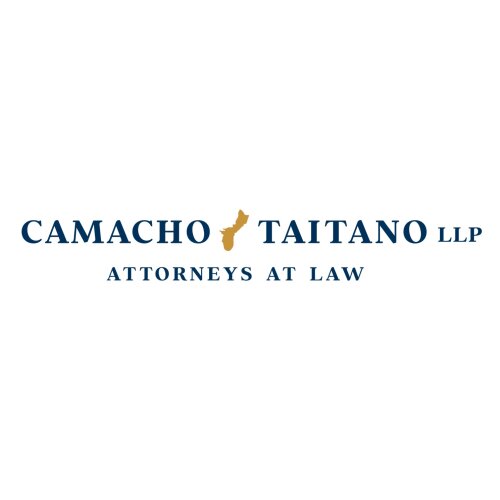Best Sanctions & Export Controls Lawyers in Guam
Share your needs with us, get contacted by law firms.
Free. Takes 2 min.
Or refine your search by selecting a city:
List of the best lawyers in Guam
About Sanctions & Export Controls Law in Guam
Sanctions and export controls are sets of laws and regulations designed to control cross-border trade, protect national security, and comply with international obligations. In Guam, which is an unincorporated territory of the United States, sanctions and export controls are primarily regulated under U.S. federal law. These laws govern the export, re-export, and transfer of goods, technologies, and services, especially those that may have military applications or that involve countries, entities, or individuals subject to sanctions. Guam’s unique strategic location in the Pacific makes compliance with these laws especially critical for individuals and businesses. Whether importing goods or engaging in international trade, understanding sanctions and export controls is essential to avoid severe civil and criminal penalties.
Why You May Need a Lawyer
Legal support in the field of sanctions and export controls can be crucial for several reasons. Common situations include:
- Businesses exporting or importing items that may fall under restricted categories.
- Shipping commercial goods or technology to foreign countries from Guam.
- Engaging in trade or financial transactions with individuals or entities from countries subject to U.S. sanctions.
- Need for professional guidance on interpreting the complex overlap of local and federal regulations.
- Responding to investigations or enforcement actions from U.S. regulatory bodies.
- Regulatory compliance in sensitive sectors such as defense, dual-use goods, or emerging technologies.
- License applications for items subject to control lists or embargo restrictions.
- Auditing business transactions to ensure compliance with trade laws and avoid unintentional violations.
- Advising on mergers and acquisitions that may involve foreign investors or controlled goods.
- Training staff to recognize and mitigate export control risks in business operations.
Local Laws Overview
Sanctions and export controls in Guam are largely governed by U.S. federal law, including the Export Administration Regulations (EAR), International Traffic in Arms Regulations (ITAR), and various sanctions programs administered by the Office of Foreign Assets Control (OFAC). Guam-based businesses and residents are obligated to comply just as any business or individual within the continental United States must do. The key aspects include:
- All exports from Guam are treated as U.S. exports and subject to federal control lists and licensing requirements.
- Certain controlled goods, software, and technology may require advance authorization before they are exported.
- Violations can result in substantial fines and even criminal prosecution.
- Entities on the specially designated nationals list, denied parties list, or embargoed country lists must not be engaged in trade or business dealings.
- Guam’s strategic position in the Pacific heightens scrutiny, especially regarding military or dual-use goods.
- Local authorities often cooperate with federal agencies in investigating and enforcing export and sanctions laws.
Frequently Asked Questions
What are sanctions and export controls?
Sanctions restrict business with certain countries, organizations, or individuals for policy or security reasons. Export controls regulate the shipment or transfer of sensitive goods, technology, and services to foreign nations.
Do Guam businesses have to comply with U.S. export control and sanctions laws?
Yes. Guam is treated as domestic U.S. territory for legal purposes, so its businesses and residents must comply fully with U.S. export controls and sanctions.
Can I export goods from Guam without a license?
Some goods may be exported without a license, but many items require pre-authorization under the EAR, ITAR, or OFAC sanctions regulations. Determining this requires careful review of control lists and applicable laws.
What happens if I violate export controls or sanctions in Guam?
Violations can result in heavy fines, criminal charges, loss of export privileges, and reputational harm to your business.
How can I check if a foreign business partner is sanctioned?
You should check the OFAC Specially Designated Nationals (SDN) list and other federal denied party lists before engaging in any transactions involving foreign entities.
Do export controls apply to technology and software?
Yes. Controls apply not just to physical products, but also to software, data, and even technical knowledge that may be transferred abroad or shared with foreign persons within Guam.
What is considered a dual-use item?
Dual-use items have both civilian and military or strategic applications. Many dual-use items are strictly controlled, even if they appear harmless or commonplace.
Are there specific Guam laws on sanctions and exports?
Guam generally follows U.S. federal law in this area. There may also be local import-export regulations and customs requirements, but federal law prevails.
What should I do if contacted by a federal agency regarding sanctions or exports?
Contact a qualified lawyer immediately. Do not respond or provide information to investigators without professional legal guidance.
Can individuals face penalties, or only businesses?
Both individuals and businesses can be held responsible for violations. Civil and criminal penalties can apply to anyone involved in illegal transactions.
Additional Resources
For more detailed information or help, consider consulting these organizations and authorities:
- U.S. Department of Commerce - Bureau of Industry and Security (BIS) for export control questions.
- Office of Foreign Assets Control (OFAC) for sanctions programs and lists.
- U.S. Department of State - Directorate of Defense Trade Controls (DDTC) for defense-related exports.
- Guam Customs and Quarantine Agency for local import-export procedures and compliance.
- Legal aid organizations in Guam with experience in international trade law.
- Professional trade compliance consultants for training and due diligence.
Next Steps
If you believe you may need assistance with sanctions or export controls in Guam, consider these steps:
- Assess your business operations for exposure to export regulations or sanctions risks.
- Locate and contact a qualified attorney in Guam with experience in U.S. export control and sanctions law.
- Gather all relevant documents regarding your transactions, products, and communication with foreign parties.
- Schedule a confidential consultation to discuss your situation and receive guidance on compliance or defense.
- Consider compliance training for your staff to prevent future issues.
- Stay informed about updates in federal and local regulations affecting Guam.
Taking early action can help protect your legal rights, business interests, and ensure full compliance with all applicable laws in Guam.
Lawzana helps you find the best lawyers and law firms in Guam through a curated and pre-screened list of qualified legal professionals. Our platform offers rankings and detailed profiles of attorneys and law firms, allowing you to compare based on practice areas, including Sanctions & Export Controls, experience, and client feedback.
Each profile includes a description of the firm's areas of practice, client reviews, team members and partners, year of establishment, spoken languages, office locations, contact information, social media presence, and any published articles or resources. Most firms on our platform speak English and are experienced in both local and international legal matters.
Get a quote from top-rated law firms in Guam — quickly, securely, and without unnecessary hassle.
Disclaimer:
The information provided on this page is for general informational purposes only and does not constitute legal advice. While we strive to ensure the accuracy and relevance of the content, legal information may change over time, and interpretations of the law can vary. You should always consult with a qualified legal professional for advice specific to your situation.
We disclaim all liability for actions taken or not taken based on the content of this page. If you believe any information is incorrect or outdated, please contact us, and we will review and update it where appropriate.
Browse sanctions & export controls law firms by city in Guam
Refine your search by selecting a city.










